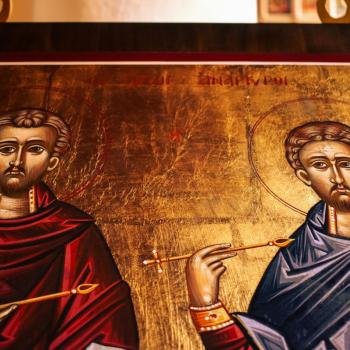Farewell to Anti-Intellectual Christianity

Pexels-rdne-stock project
There’s an anti-intellectual plague in our nation. Standing up to “these experts” has become a badge of honor among evangelical preachers as they shake their Bibles at global warming, COVID vaccines, American history, evolution – subject they are often ill-informed and close to ignorant about, yet they talk and act like experts.
Christianity has not previously been an anti-intellectual movement. The church fathers and mothers of the first five centuries were among the most educated intellectuals of all the philosophers and rhetoricians. For fourteen centuries the philosophy of Plato and Aristotle dominated the philosophical conclusions of Christian theologians.
There’s nothing in the Bible or the Christian faith that requires “literal truth.” There’s nothing that requires
fundamentalism. The two are redundant. Their widespread influence in America has ridden on the backs of a populist wave that needs to subside.
Now is a good time for Christianity to return to its intellectual roots. One of the oldest and deepest of these roots is the Gospel according to St. John.
John’s Gospel steps on the last nerve of a biblical literalists. John offers multifaceted aspects of revelation, double meanings for words, several layers of meaning in the same text, and misunderstanding that is only resolved with additional teaching. Then there are duplicate speeches where Jesus seems to say the same thing as a speech already recorded in John. According to Brown, “an editor who worked over the Gospel found in the tradition other versions of discourse material duplicating in part the versions that John had already included and added them at an appropriate place lest they be lost. At times there is a different tone in the duplicate material.
John has the scholar’s meticulous attention to detail and method. Frequently, John applies parenthetical notes, explaining the meaning of Semitic terms or names, offering background for developments in the narrative and for geographical feature, and supplying theological perspectives. Some of these may reflect the work of a later editor.
John’s Gospel has a more solemn and sacred style, and his style is clearly tied to his theology. Raymond Brown, in his Introduction to the New Testament suggests that John’s Gospel is semipoetic (Always keep a good Introduction to the New Testament on your desk; change it every year). As a result, Jesus speaks more solemnly in John than in the Synoptics. John’s Jesus comes from above and speaks what is true or real. He is the “Word become flesh” and thus he must use language from below to get across his message. John tells us that Jesus is divine being (God’s Word), who is also the light and God’s only Son who comes into the world and becomes flesh. Our faith is bodily, fleshly, and material. Jesus empowers all who accept him to share in God’s fullness.
God starts deep and goes deeper. The deepest harbor in the world is the Port of Long Beach, California at 76. John’s Gospel is the deepest harbor in the New Testament – a safe space for the deepest questions, the agonizing doubts, the philosophical quandaries of life that disturb us.
- “In beginning the Word was God.”
- “The light shines in the darkness, and the darkness did not overcome it.”
- “To all who received him, who believed in his name, he gave power to become children of God, who were born, not of blood or of the will of the flesh or of the will of man, but of God. And the Word became flesh and lived among us, and we have seen his glory, the glory as of a father’s only son, full of grace and truth.
- “From his fullness we have all received, grace upon grace.”
The words Jesus chooses are often figurative and metaphorical. In the story of Nicodemus, a learned religious scholar misunderstood Jesus’ metaphor, and this allows Jesus to explain his thought more thoroughly. This is an ongoing theme in John: People misunderstand Jesus and Jesus helps them grasp the truth. There’s a national advertising campaign currently with the theme: “Jesus gets us.” Well, our problem is that we often misunderstand Jesus. John seems determined to help us here.
The church could use a few more philosophers to stir the pot! The church isn’t looking so smart these days. Folks are caught up in anti-scientific, anti-philosophy, anti-intellectual movements. An entire segment of the church has become like an old deacon in my first full-time church. He would say, “Preacher I don’t know what you are talking about, but I’m ‘agin’ it.”
Soren Kierkegaard, Danish existentialist philosopher, said that boredom would be the death of the church. Swimming in deep water is not boring. Excellence takes practice, effort, a straining of the brain. There’s no way around the intensity involved in thinking are way through biblical meanings. This is not an invitation to the shallow waters of emotionalism. In that way, people just make up meanings of texts.
More churches ought to encourage deep thinking about the meaning of life. We already have enough sequestered, scared, communities of people who gather on Sunday morning to reassure themselves that everyone else believes as exactly as they do. These are the people who assume that everything they believe is exactly right and that everyone else should agree with them. This is not an appeal for elitist university life. It includes people with common sense. Church is the place where we hammer out the values we will share in common. Here we discuss, argue, discern, and reach a path that moves us forward.
I ask that you treat the philosophers among us with respect. Philosophers have been sent from God just as surely as the first wise persons came from the East to worship the child. They come bearing gifts that have no relation to material wealth, but everything to do with life and wisdom. They know some of the complex and amazing truths that we need to know. May the Word be in you, with you, and among you always!













